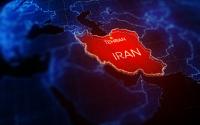13 July 2007
Government energy policies are damaging the environment, destabilising the global economy and increasing the risk of war according to a 19-nation opinion poll for BBC World Service.
The findings - issued in the run-up to the G8 energy summit of leading industrialised nations in St Petersburg - revealed that eight out of ten (81%) of those questioned are concerned about threats to the environment and climate from the way energy is produced and used.
Three out of four (77%) think energy shortages and prices will destabilise the world economy - with a similar number (73%) worried that competition for energy will lead to greater conflict and war between nations.
Strong world-wide support for government tax incentives for developing renewable energy supplies emerged (80%) along with increasing fuel efficiency standards for cars (67%).
But support for more nuclear energy was more muted - with only half of respondents favouring nuclear energy to reduce reliance on oil and coal.
Britain, Australia, Canada and South Korea were among countries most concerned about adverse environmental impacts of energy policies - each with over 90% concerned. Poland was least concerned - with 57% concerned.
With oil prices hitting record levels in recent weeks, majorities of 60% or more in 18 of the 19 countries polled believed "energy shortages and prices will destabilise the world economy".
The Philippines expressed the highest level of concern (95%), with the least concerned being Russia at 48% (Russia produces oil and gas and has benefited from high prices).
Majorities in all 19 countries polled were concerned that "competition for energy will lead to greater conflict and war between nations".
On average 73% expressed concern, including 36% who were 'very concerned'. The Philippines recorded the highest 'very concerned' figure (50%) followed by Kenya (49%).
The suggestion that "creating tax incentives to encourage the development and use of alternative energy sources, such as solar and wind" attracted 80% overall support - with Italy recording 95% backing followed by Australia (93%), Canada (91%) and France (91%).
Support for government-imposed standards to "require automakers (car manufacturers) to increase fuel efficiency, even if this means the price of cars would go up" attracted an average 67% backing overall - with strongest support from Australia and Italy.
"Increasing energy taxes to encourage conservation" was supported by just 37% of those polled. Britain was among four countries favouring higher energy taxes with 62% support.
The others were Australia (69%), Kenya (60%) and India (51%). Opposition was especially strong in Poland (87%), Brazil (87%), Ukraine (86%), and Russia (84%).
There was lukewarm support for more nuclear energy in the context of reducing reliance on fossil fuels. In 12 countries there was more support than opposition for the idea of "building new nuclear power plants to reduce reliance on oil and coal".
On average, 49% were in favour (20% strongly) of more nuclear plants.
Some of the highest support for nuclear power came from India (66%), with backing also high in Egypt (69%), Kenya (65%) and South Korea (65%).
The strongest opposition was in Ukraine (67%), which in 1986 suffered the world's worst nuclear reactor disaster in Chernobyl. There was also strong opposition in Germany (63%), which has a large anti-nuclear movement, Russia (60%) and France (57%).
Citizens around the world expressed concern that major energy suppliers, especially Iran, may withhold energy. Respondents were presented a list of energy exporting countries and asked: "How much do you trust them to follow though on their commitments to deliver energy to other countries?"
Iran was the least trusted. In 17 of the 19 countries, a majority or plurality said they had "not much trust" or "no trust at all" in the country. Only Egypt and India had majorities which trusted Iran as an energy supplier (73% and 52%, respectively).
World opinion was evenly divided on whether to trust Russia to honour its energy commitments, despite Moscow's decision earlier this year to cut off the natural gas delivered via pipeline to Ukraine. On average, 45% said they trust Russia with 45% expressing lack of trust.
The international polling firm GlobeScan and the Program on International Policy Attitudes (PIPA) questioned 19,579 people between May and July 2006.
Countries surveyed were: Australia, Brazil, Britain, Canada, Chile, Egypt, France, Germany, India, Israel, Italy, Kenya, Mexico, Philippines, Poland, Russia, South Korea, Ukraine and the United States.
PIPA Director, Steven Kull, said: "The poll shows an extraordinary level of agreement that the way the world is producing and using energy is not viable. People around the world will be looking to the G8 leaders to address this issue and show a readiness to support significant new steps".
GlobeScan President, Doug Miller, added: "People see the energy status quo as too risky. What's fascinating is that in the midst of historically high energy prices and geopolitical tensions, the number one energy concern in every industrialised country we surveyed is the environmental and climate impacts."
Notes to Editors
Polling was conducted for the BBC World Service by the international polling firm GlobeScan and its research partners in each country.In four of the 19 countries, the sample was limited to major urban areas. The margin of error per country ranges from +/-2.5 to 4%.For more details, please see the Methodology section of the detailed release on the right hand side of this page or visit www.pipa.orgGlobeScan Incorporated is a global public opinion and stakeholder research firm with offices in Toronto, London, and Washington. GlobeScan conducts custom research and annual tracking studies on global issues. With a research network spanning 50+ countries, GlobeScan works with global companies, multilateral agencies, national governments, and non-government organisations to deliver research-based insights for successful strategies.The Program on International Policy Attitudes (PIPA) is a joint programme of the Center on Policy Attitudes and the Center for International and Security Studies at the University of Maryland. PIPA undertakes research on attitudes in publics around the world on a variety of international issues and publishes the website/webzine WorldPublicOpinion.org. Full findings of the poll are in the attached pdf document, which can be found on the right hand side of the page.
http://www.bbc.co.uk/pressoffice/pressreleases/stories/2006/07_july/13/energy.shtml






